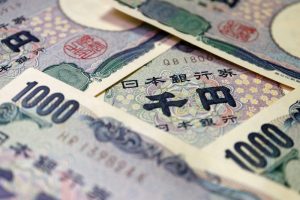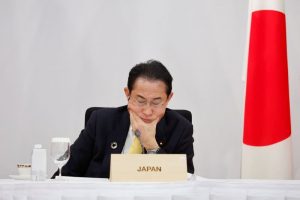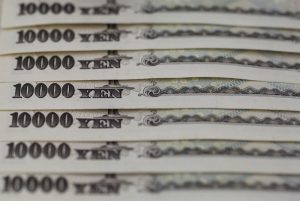Japan’s finance minister Shunichi Suzuki maintained silence on Friday on the prospect of Tokyo intervening in the foreign exchange market to stem the decline in the Japanese yen, while warning against rapid fluctuations.
The yen hit a 20-year low against the dollar on Thursday and a seven-year trough against the euro on expectations the Bank of Japan (BOJ) will continue to lag behind other central banks in exiting its stimulus.
The weak yen trend has boosted the prices of imported commodities and pushed up the cost of living for resource-deficient Japan.
“I won’t comment on currency levels, including the question (of intervention) to avoid causing any impact from an offhand comment,” Suzuki told reporters when asked about the possibility of intervention.
‘A Stable Yen is More Important’
“What’s most important is currency stability as rapid fluctuations are not desirable,” Suzuki told a news conference, repeating the official line.
“We will continue to carefully watch currency market movements and their impact on Japan’s economy with a sense of urgency.”
The Japanese currency on Thursday weakened to as much as 134.56 yen per dollar.
Japanese currency authorities were likely left in a bind over the yen’s weakening, said Daisaku Ueno, chief forex strategist at Mitsubishi UFJ Morgan Stanley Securities.
“Verbal intervention is not working, while it has not reached a danger zone around 145 yen that I think warrants actual intervention,” Ueno said.
The yen has lost over 14% against the dollar so far this year. It last traded at about 134.05 yen per dollar.
Japan in theory could take unilateral action by intervening, while giving US authorities advanced notice of such a move, Ueno said.
“But that would upset (US Treasury Secretary Janet) Yellen who is a firm believer of market-determined exchange rates, particularly at a time when the US is battling rising inflation,” he added.
Yen’s Slide Due To Fundamental Factors
However, despite repeating verbal warnings against the yen’s recent weakening, Japanese authorities remain in no mood to intervene in the exchange market, partly because a strong US dollar suggests the currency’s slide is due to fundamental factors.
A government source with knowledge of the matter said on condition of anonymity that the velocity of the yen’s move would matter more than any particular levels in judging the need for intervention.
Suzuki said on Friday that Japan’s government would respond appropriately based on the Group of Seven agreement on foreign exchange.
There is no clear consensus among analysts on a trigger point for currency intervention.
Some investors had previously seen 125 yen to the dollar as a trigger for action in the foreign exchange market – the level known as the “Kuroda line” after BOJ governor Haruhiko Kuroda signalled caution when the yen last reached that mark in 2015.
- Reuters with additional editing by Sean OMeara
ALSO READ:
No Good or Bad Yen Exchange Rates, Japan Official Says
Japan Finance Minister Makes Strongest Warning On Yen Slump
Weak Yen a Sign of Japan’s Poor Fundamentals: Ex-IMF Official
























